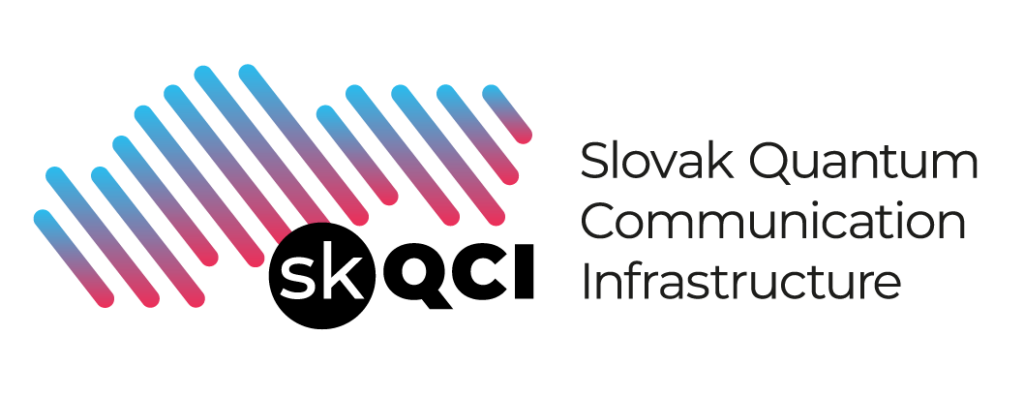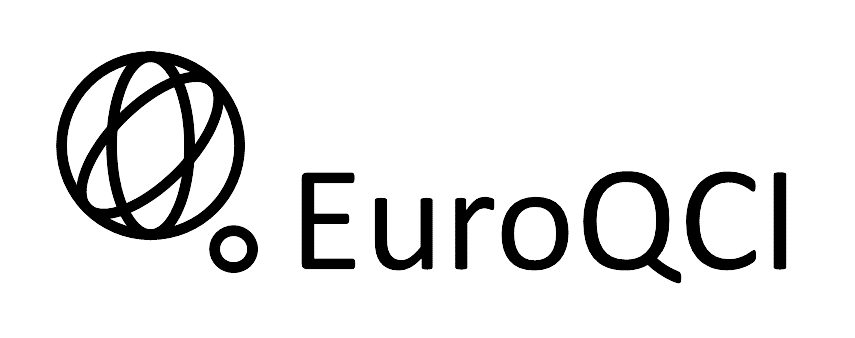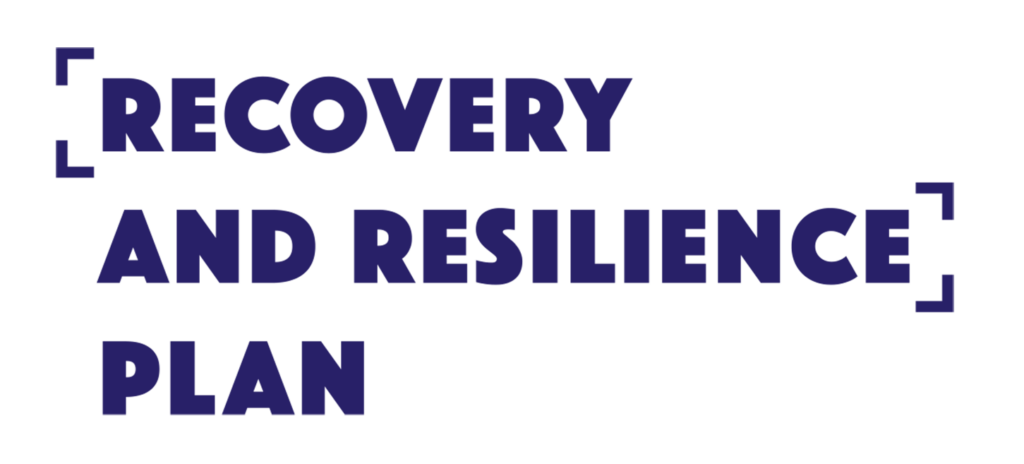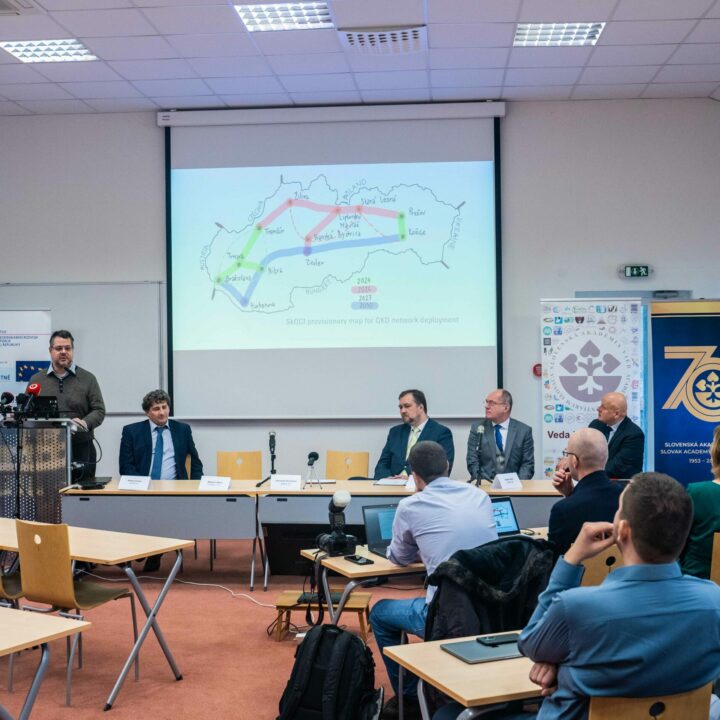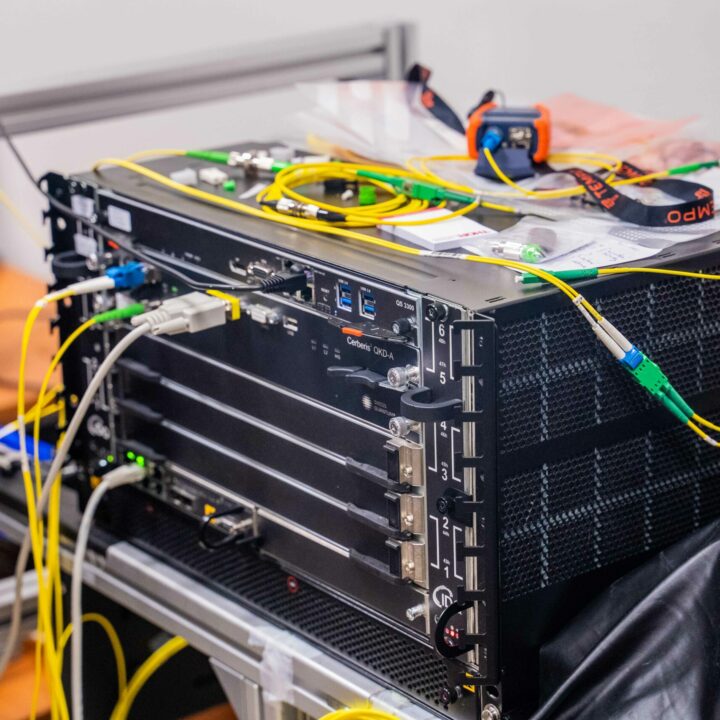Summer school 2024: Quantum Technologies
- Home
- event
- 2024
- Events
- Technology
- Summer school 2024: Quantum Technologies
Join us for an immersive week-long summer school, co-organized by the Institute of Physics Slovak Academy of Sciences, Fachhochschule Technikum Wien and QUTE.sk – Slovak National Center for Quantum Technologies. This unique event will integrate insights from leading industry and scientific experts with interactive student projects focusing on:
Quantum Computing
Quantum Cryptography
Quantum Electronics

Why attend?
- Global Networking: Connect with a diverse group of students from around the world, prospective employers, and renowned educators.
- Expert Insights: Gain knowledge from top-tier professionals in the quantum technology field.
- Interactive Projects: Engage in hands-on projects that enhance your learning experience.
- No Exams: Enjoy a stress-free environment with no exams, allowing you to fully immerse yourself in the learning experience.
- Certification: Course certificate upon completion for all attendants
- Credits: Undergraduates & graduates students from FHT Wien will receive 3 ECTS upon completion.
Who can attend?
- Target audience: undergraduates & graduates students (bachelor, master of sciences) but open to all, no prior knowledge of quantum physics is required. Everyone with an interest in quantum technologies is welcome.
- Language: All talks and workgroups will be conducted in English to support international participation.
How much does it cost?
- A deposit of 30 EUR is required for registration. This fee will be fully refunded as meal vouchers redeemable at canteen.

Institute of Physics SAS

FH Technikum Wien

QUTE.sk - Slovak National Center for Quantum Technologies
Practical Hands-on Workshops
Our hands-on workshops are designed to offer a comprehensive and interactive learning experience. Using the quED – Entanglement Demonstrator and its various add-ons, participants will conduct several key experiments that illustrate the core phenomena of quantum physics. Students will also have the opportunity to experiment with the Gemini Mini Pro (2-qubit portable NMR quantum computer).
Below are the main experiments included in our workshops:
Bell Experiment with Entangled Photons
Demonstrate the violation of Bell’s inequality to prove quantum entanglement.
Using polarization-entangled photon pairs, students will measure the coincidence count rates at different polarizer settings to calculate the S value. An S value greater than 2 confirms entanglement, showcasing the non-classical correlations predicted by quantum mechanics.
Experiment Highlights:
- Generation of entangled photon pairs
- Measurement of polarization correlations
- Calculation and analysis of Bell’s inequality (CHSH inequality)
Quantum Key Distribution (QKD) using the BB84 Protocol
Understand the principles of quantum cryptography and secure communication.
Participants will perform QKD using the BB84 protocol, simulating a secure communication channel between two parties (Alice and Bob). They will also learn how to detect potential eavesdropping through an intercept-resend attack.
Experiment Highlights:
- Setup and execution of the BB84 protocol
- Demonstration of secure key exchange between two parties (Alice and Bob)
- Analysis of potential eavesdropping and detection
HOM-Dip 2-Photon Interferences
Observe the Hong-Ou-Mandel (HOM) effect, a fundamental quantum interference phenomenon.
By directing two indistinguishable photons into a beam splitter, students will witness the photons exiting together, demonstrating the unique quantum property with no classical analog. The HOM dip in coincidence count rates will be measured to illustrate this effect.
Experiment Highlights:
- Explore 2-photon interference, showcasing quantum entanglement.
- Witness the HOM dip, demonstrating anti-bunching of indistinguishable photons.
- Observe and analyze quantum interference patterns in real-time.
HBT Light & Photon’s Statistic (Hanbury Brown Twiss Setup)
Study the particle nature of photons and measure the second-order correlation function.
This experiment involves splitting photon pairs and measuring photon statistics to confirm that individual photons cannot be divided. Participants will calculate the g(2)(0) value and explore quantum random bit generation.
Experiment Highlights:
- Observe quantum light correlation and photon statistics.
- Collect and analyze data hands-on during the experiment.
Calibrating and Characterizing Qubits in a Quantum Computer
Learn the process of qubit calibration and characterization in quantum computing.
Using the Gemini Mini Pro (2-qubit portable NMR quantum computer), students will perform experiments to calibrate and characterize qubits, which are the fundamental units of information in quantum computers, and understanding their properties and behaviors within a quantum computer setup.
Experiment Highlights:
- Understanding qubit properties and behavior
- Calibration techniques for qubit systems
- Characterization methods to determine qubit performance
Programming Quantum Algorithms
Gain hands-on experience with programming quantum algorithms.
This workshop will provide an introduction to quantum programming. Students will learn how to implement and execute basic quantum algorithms, gaining hands-on experience with quantum logic gates and circuits.
Experiment Highlights:
- Introduction to quantum programming languages
- Implementation of basic quantum algorithms (e.g., Grover’s and Shor’s algorithms)
- Execution and analysis of quantum circuits
Quantum Machine Learning
Explore the integration of quantum computing with machine learning.
Students will experiment with quantum machine learning algorithms, observing how quantum principles can enhance machine learning tasks, providing insights into this cutting-edge field.
Experiment Highlights:
- Introduction to quantum machine learning concepts
- Implementation of quantum machine learning algorithms
- Comparison of classical vs. quantum approaches
Meet Our Speakers
Our summer school brings together top minds in quantum technologies included renowned scientists, industry experts, and academic scholars who will share their insights and experiences. Stay tuned for more details about our exciting roster of speakers and the cutting-edge topics they will cover.










Program
9:30 – 11:00 – Arrival & Registration
11:30 – 12:00 – WELCOME OPENING TALK (Lecture Hall B) – Djeylan Aktas (IP SAS), Mira Maiwöger (FH Technikum Wien)
12:00 – 12:20 – SAIA Presentation
12:20 – 13:30 – Lunch
13:30 – 17:00 – Laser and Safety Induction & WORKSHOPS
9:00 – 10:00 – Mário Ziman (IP SAS): From bit to qubit and back again
10:00 – 11:00 – Vladimír Bužek (IP SAS): Quantum Clickology
11:00 – 11:30 – Coffee Break
11:30 – 12:30 – Lukas Mairhofer (qtlabs): Quantum Key Distribution: Foundations and Protocols
12:30 – 13:30 – Lunch
13:30 – 17:00 – WORKSHOPS
9:00 – 10:00 – M. Hamed Mohammady (IP SAS): Thermodynamics of quantum systems
10:00 – 11:00 – Ivan Doboš (Aricoma): Quantum Computing goes business
11:00 – 11:30 – Coffee Break
11:30 – 12:30 – Lukas Mairhofer (qtlabs): Quantum Key Distribution: Implementations
12:30 – 13:30 – Lunch
13:30 – 17:00 – WORKSHOPS
18:00 – 22:00 – Summer School Dinner (Restaurant Drag, Staré Grunty 64, Bratislava)
9:00 – 10:00 – Daniel Buchta (Aricoma): On the convergence of Quantum Computing, Reinforcement Learning and Large Language Models
10:00 – 11:00 – Mariana Ferreira Ramos (AIT): Unlocking Quantum Security – A Beginner’s Guide to QKD.
11:00 – 11:30 – Coffee Break
11:30 – 12:30 – Hermann Detz (FCS Technikum Wien): Quantum engineered semiconductor devices
12:30 – 13:30 – Lunch
13:30 – 17:00 – WORKSHOPS
9:00 – 10:00 – Jessie Qin-Dregely (Single Quantum): Single Quantum SNSPD: A bright future where every single quantum counts
10:00 – 11:00 – Branislav Majerník (Accenture): AQA – Accenture Quantum Activities
11:00 – 11:30 – Coffee Break
11:30 – 12:30 – Zora Hollá (IBM): Quantum Computing – the IBM approach
12:30 – 13:30 – Lunch
13:30 – 17:00 – Nico Klein (QuTools): quNV demonstration
Workshops will be organised into subgroups on the first day after registration depending on participant’s choices and the amount of demonstrators available on the day.
How to find the venue?
The registration for Summer School will take place on Monday 9:30AM – 11PM – during this period the entrance pointed on the map will be open. For the rest of the week, we recommend to use Entrance M, opened from 8:30AM till 5PM.
Our venue is easily accessible by public transportation with nearby bus and tram stops:
– Botanická záhrada (tram 4, 9, bus 29, 32)
– Zoo (bus 31, 32, 37, 39, 192)
In public transportation in Bratislava tickets must be marked (validated) immediately after boarding the means of transport. Available are e.g. time tickets for 30 or 60 minutes. You can find the exact connection on the official website.
For international attendees, connection from the airports:
– Vienna Airport → Bus → Bratislava Central Bus Station Mlynské Nivy
– Bratislava Airport → Bus 61 → Main Railway Station (last stop)
For parking you can use the parking place in front of the Entrance M, or the other next to it.
Tips for Accommodation

Curious about what to expect?
Watch our highlights from last year’s Quantum Technologies Summer School! See engaging lectures, hands-on projects, and the vibrant community that made the event unforgettable. Get inspired and ready for this year’s incredible journey into quantum technologies!
The project skQCI is funded by the EU Programme DIGITAL and Programme NextGenerationEU from Recovery and Resilience Plan of the Slovak Republic.
